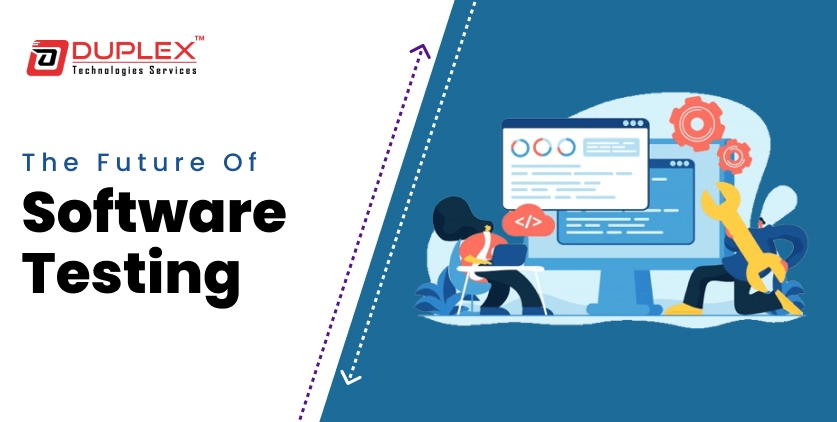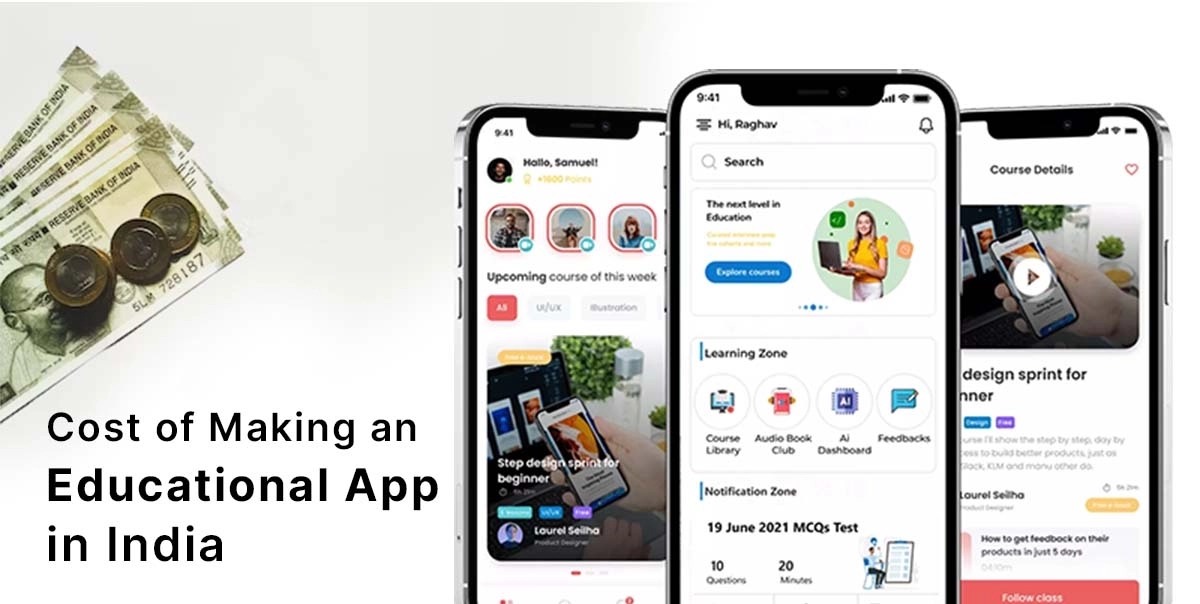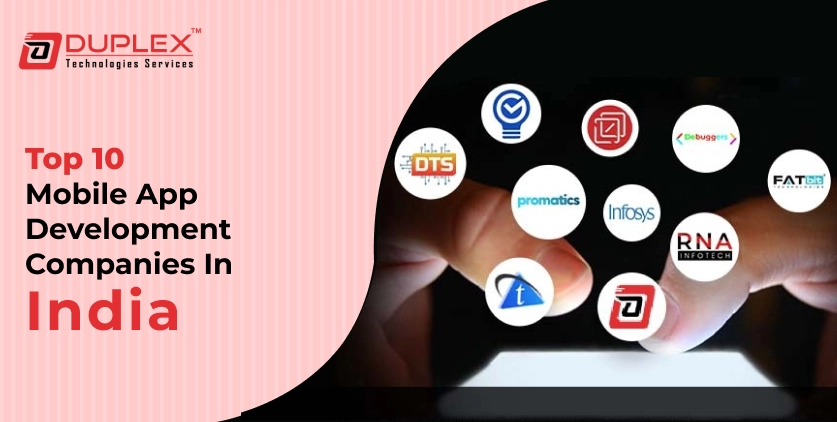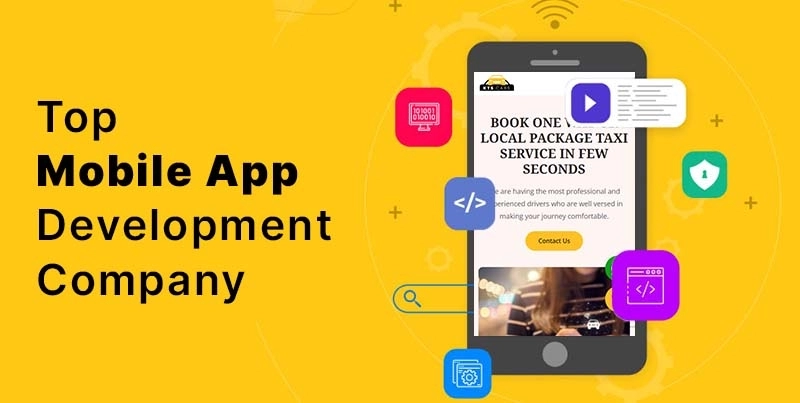Learning The Future of Software Testing | future software testing techniques | Duplex Technologies

Posted By : Deepank Joshi, Posted Date : Nov 16, 2024
The Future of Software Testing
Let us learn about the future of software testing and how it benefits us with the team of Duplex Technologies.
Apps are used every day in our surroundings, from ordering food and cabs to managing bank accounts to consulting healthcare services. However, the risks might arise due to the untested software, which can erode customer trust and, in turn, business prospects. To address this, the software testing industry practices multiple testing processes and upcoming software testing technologies, among which are manual testing, automation testing, and agile testing. However, the reality of the situated context is changing. New generation technologies, for example, artificial intelligence, machine learning, and the Internet of Things, are revolutionizing testing approaches. As we value the importance of understanding new trends. Our competencies allow for guidance on future software testing developments.
Table of Contents
The importance of upcoming software testing technologies
Quality assurance or upcoming software testing technologies are important to assure that the applications are fit for their purpose and do not include errors as perceived by the end users. It lets you know about flaws, sure about the working model, and certain about performance, safety, and compliances. Testing, in such a context, protects against losses, erosion of reputation, and dissatisfied customers. The strategies help companies keep their software testing on the right level while excluding excessive expenditures, moving focus to basic market activities, and inspiring innovation, all in order to release high-quality software products as efficiently as possible. However, software testing processes are not immune to certain dynamic changes due to technological advancement, growing user demands, and changing industry standards. The need for continuous changes or future trends in software testing arises from:
- The current manual testing processes are inefficient and drudgery, as well as liable to human errors.
- The use of new technologies such as IoT, cloud computing, and mobile devices increases testing difficulties.
- Traditional testing models no longer sustain agile development methodologies, which rely on short testing cycles.
Some future trends in software testing
Artificial Intelligence (AI) and Machine Learning (ML)
AI and ML are bringing disruption in the space of software testing by providing better governance over test automation, smart testing, and self-healing tests. Testing tools are defined by possibilities and can be extended by artificial intelligence capabilities which can be learned from test data, can analyze them, and can improve testing processes taking into account observed patterns. Testing is improved by the combination of AI and ML in terms of time, results, and effectiveness.
Intelligent Automation
Intelligent automation is an upcoming software testing technologies that brings down the monotonous tasks in the process of software testing, thereby lowering manual involvement and enhancing the test adequacy. CAA, on the other hand, uses artificial intelligence and machine learning in the analysis of results, defect identification and even adjusts tests. It is a synergy that helps to complete testing cycles far more quickly, thereby improving the already fast time-to-market.
DevOps and Continuous Testing
DevOps and Continuous Testing is the process of incorporating tests into the DevOps process, where they effectively become part of the coders, testers and operations team. Constant testing provides feedback as they run, test, and deploy as a continuous string. This therefore helps to deliver quality software, minimize on defects and thus maximize customer satisfaction.
Cloud-based Testing
Cloud-based testing uses cloud infrastructure to offer flexible space for testing and it is cheaper as well as efficient. The benefit of these future trends in software testing allows the quick deployment of tests, allows for more automation testing and allows for collaborative testing. It increases the test coverage and makes it possible to decrease testing cycles and make improvements to the software.
Internet of Things (IoT)
IoT testing is designed to overcome the testing issues of connected things, connection networks, and the system. The main testing of IoT includes checking the functions, compatibility, security and data of communicating devices. IoT testing lays emphasis on efficacy of device interaction, secure communication and proper functioning of security measures.
Tools for future software testing
In the future software testing, efficiency, speed and accuracy are going to be improved by using some sophisticated tools and best technologies. Some of these include:
- Tools like Selenium, Appium, TestComplete, Ug, and others for testing different kinds of applications that would integrate AI features into their frameworks in the future.
- Pre-embedded testing services, which include AWS Device Farm, Google Cloud Test Lab, and Microsoft Visual Studio App Center.
- Automation testing tools by use of artificial intelligence such as Applitools, Functionize, and Mabl.
- Modern IDEs such as Eclipse, Visual Studio and IntelliJ have preliminary functionalities for testing frameworks.
- Secure testing of a blockchain.
- Quantum computing, where there is a need for simulation of very complex tests.
- Modern solutions like Docker for effective testing based on the usage of containers.
Challenges in The Future of Software Testing
In the future of software testing, there’ll be several challenges as it grows and prospers. The first and most compelling change is the skill gap since the testers themselves will need to upgrade alongside the technology, such as AI, ML, and IoT. Implementing these upcoming software testing technologies in testing activities will also call for substantial investment in training and education. Further, the security and privacy of the data will become challenging in complicated systems even more. The quick tempo of technological development will also create problems in terms of sustaining the testing milieu and compatibility. Furthermore, the volumes of test data are growing at an exponential rate, and testing decision-making will need to incorporate analytics as part of its process; tools to support both of these aspects will be sophisticated. Many of these will become important to surmount.
Conclusion
Lastly, this blog concludes that the future of software testing is set for reinvention due to innovative technologies and changing circumstances in organizations. In simple terms, testing will be more challenging and its practices will need to and must adopt better tools and better brains. AI and automation, machine learning particularly, will hold significant importance for optimising the test processes. Such changes will help organizations deliver effective software products quickly and efficiently. Sustaining a high level of innovation in future software testing means giving testers and organizations the tools they need to unlock this vital form of value and maintain business and technical superiority in the evolving digital environment. Flexibility and creativity will unveil the shining future of the testing tomorrow.

























































